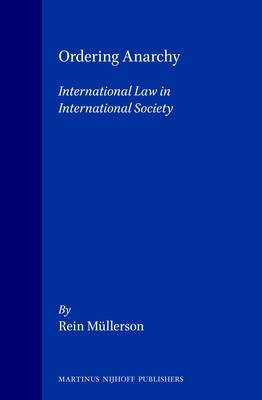
- Afhalen na 1 uur in een winkel met voorraad
- Gratis thuislevering in België vanaf € 30
- Ruim aanbod met 7 miljoen producten
- Afhalen na 1 uur in een winkel met voorraad
- Gratis thuislevering in België vanaf € 30
- Ruim aanbod met 7 miljoen producten
Zoeken
Omschrijving
The end of the Cold War has released some hitherto suppressed trends in international society that are reshaping international order, such as globalization and its nemesis - fragmentation. This volume analyzes the current transformation of the character of the state as the principal actor of international society and related changes in the structure of international society. International law, especially its fundamental principles, such as sovereign equality of states, non-use of force, non-interference, respect for human rights, and self-determination of peoples, reflect some basic characteristics of the state and the structure of international society. Because of significant changes going on in the latter, many crucial principles of international law have ceased to reflect the reality. Moreover, fundamental principles often come into conflict with each other since they reflect main characteristics of different international societies -- Westphalian and post-Westphalian.
Specificaties
Betrokkenen
- Auteur(s):
- Uitgeverij:
Inhoud
- Aantal bladzijden:
- 400
- Taal:
- Engels
- Reeks:
- Reeksnummer:
- nr. 37
Eigenschappen
- Productcode (EAN):
- 9789041114082
- Verschijningsdatum:
- 1/07/2000
- Uitvoering:
- Hardcover
- Formaat:
- Genaaid
- Afmetingen:
- 163 mm x 250 mm
- Gewicht:
- 689 g

Alleen bij Standaard Boekhandel
+ 720 punten op je klantenkaart van Standaard Boekhandel
Beoordelingen
We publiceren alleen reviews die voldoen aan de voorwaarden voor reviews. Bekijk onze voorwaarden voor reviews.








